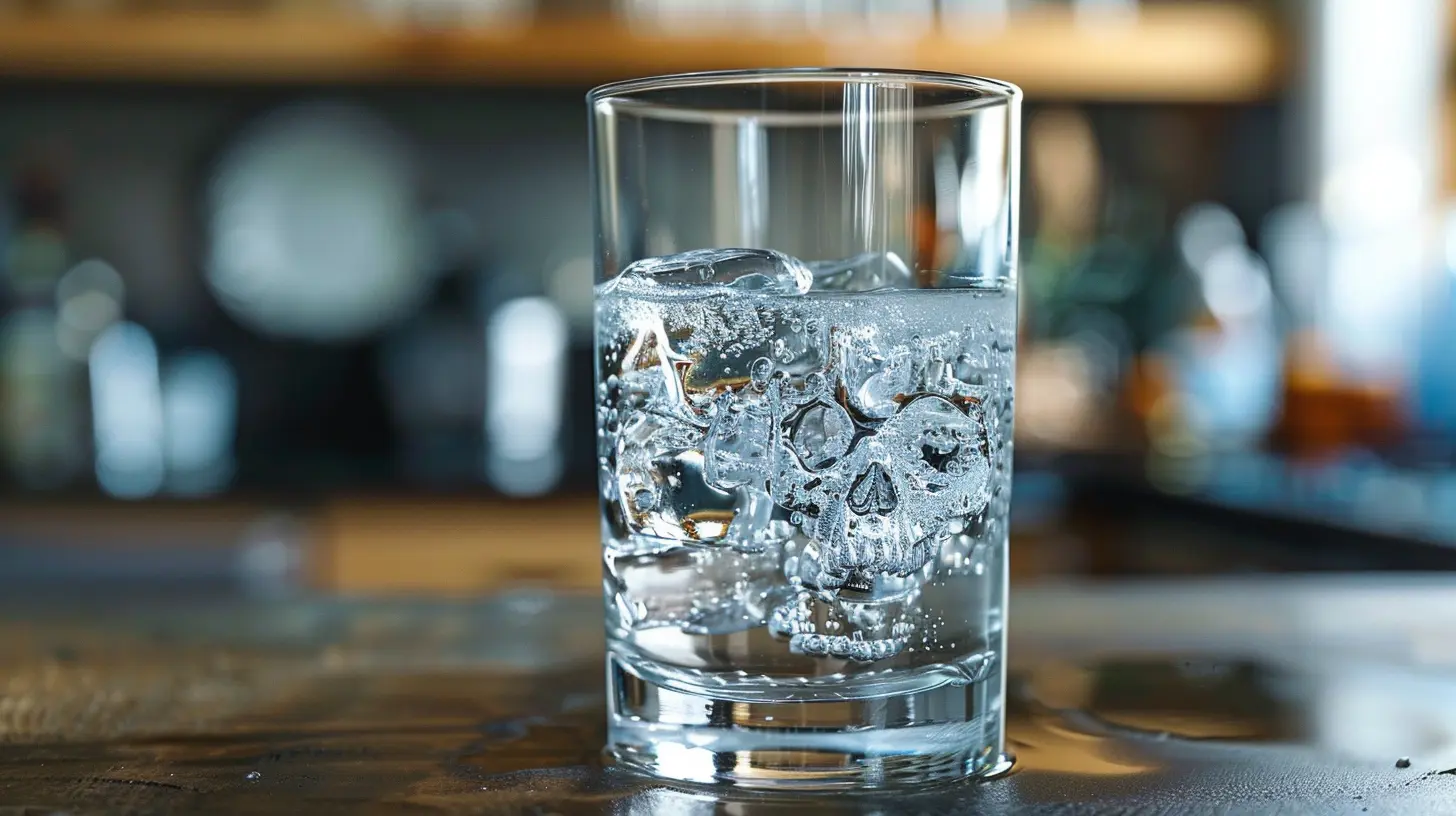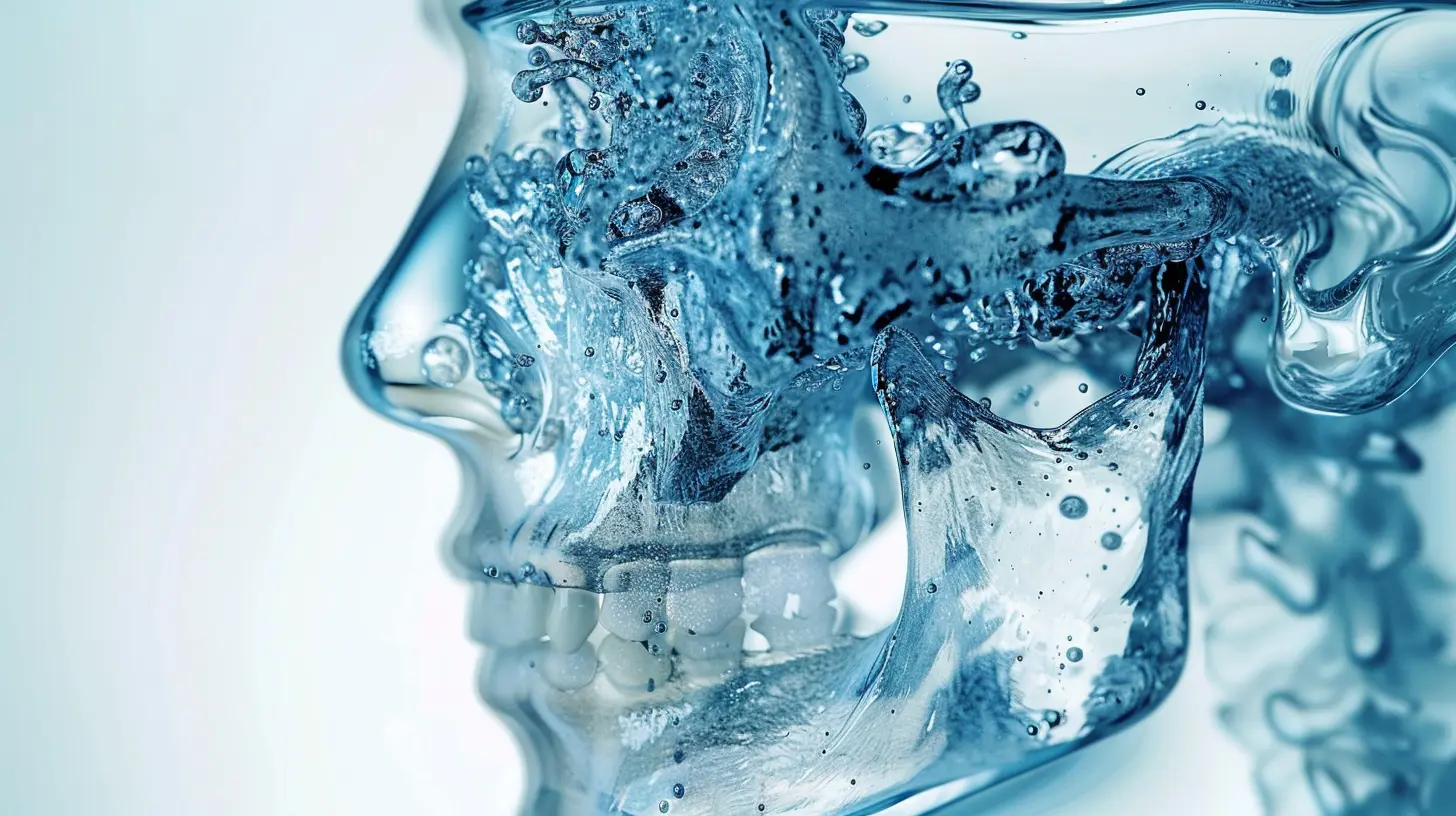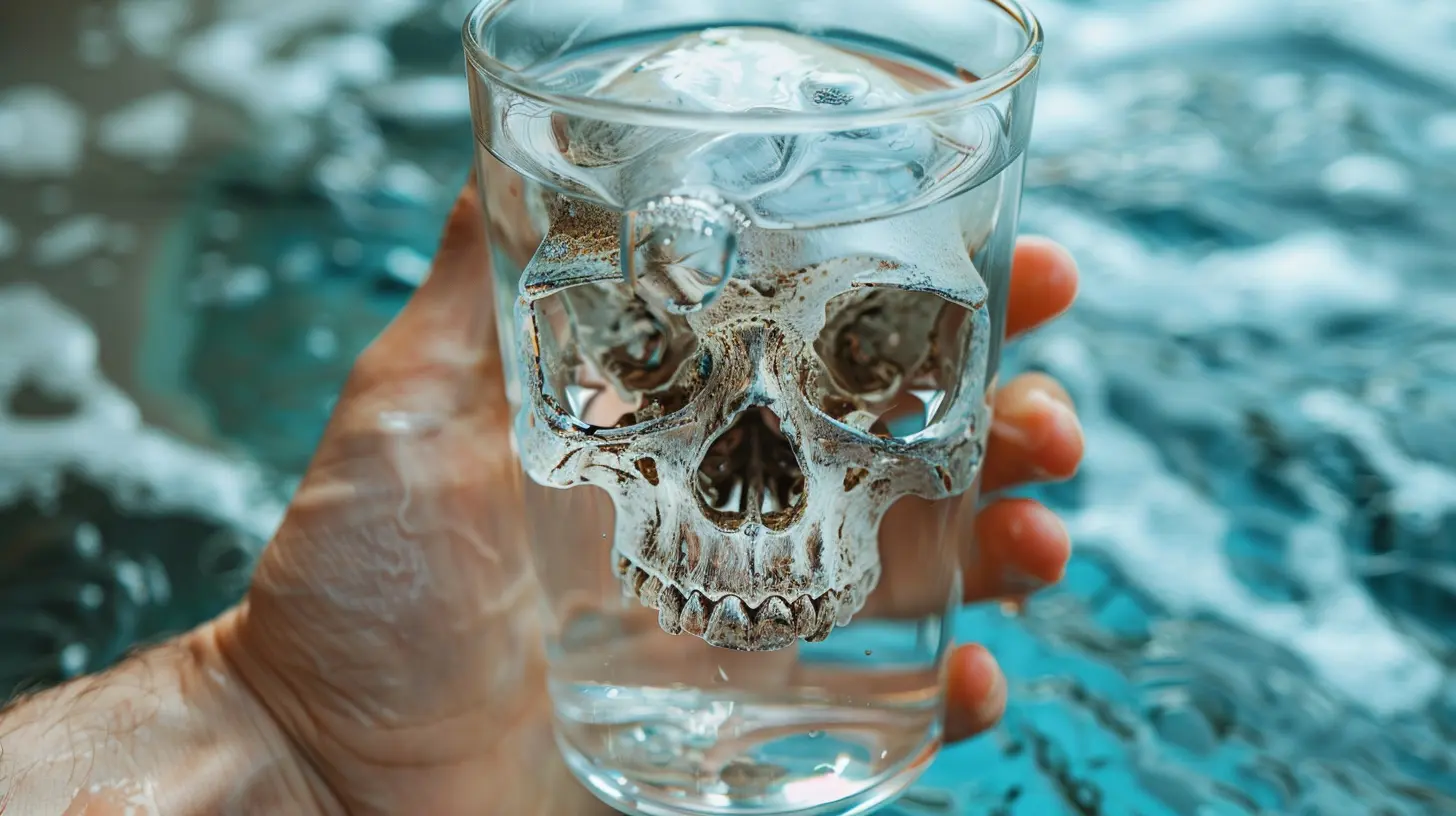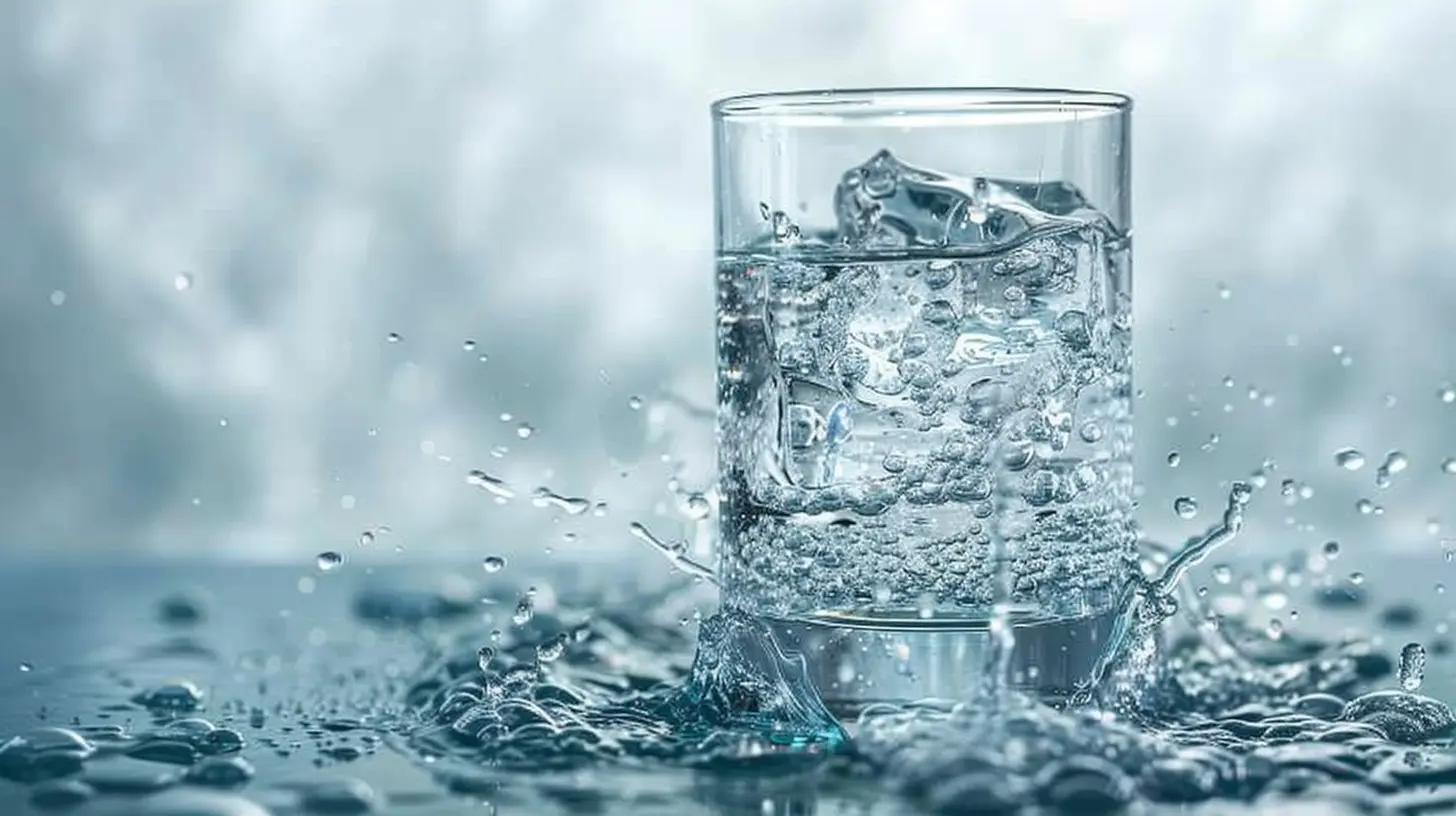Why Hydration Matters in Bone Health
26 June 2025
When we talk about hydration, most people immediately think about its impact on energy levels, skin glow, or even weight loss. Rarely do we connect drinking enough water with stronger bones. Strange, right? But here’s a twist—it turns out that hydration might be the unsung hero in your bone health story. And if you’ve never looked at your water bottle as a bone-strengthening tool, you’re in for a surprise.
Let’s dig deep. Not just into the science, but also into how something so simple—like sipping water—can have a profound impact on your skeletal system.

The Hidden Link Between Water and Bones
Water is everywhere in your body. It makes up about 60% of your entire body composition. But did you know your bones are about 25% water? That's right—your rock-solid framework isn’t as dry and, well, "bony" as you think. Bones aren’t just static structures. They’re living tissue that constantly rebuilds itself. And hydration plays a sneaky, yet critical, role in that process.Let’s think of your bones like a sponge. Ever tried bending a dry sponge? It breaks, right? Now try the same with a wet one—it bends, it’s flexible, and a lot harder to snap. That’s a pretty good metaphor for what proper hydration does to your bones.

Why Bone Health Even Matters
Before we get too far, let’s make this clear: You need healthy bones not just to avoid breaks or fractures, but to keep moving, standing tall, and living actively. Your bones protect vital organs, anchor your muscles, and store essential minerals like calcium and phosphorus.The scary part? Bone density declines as we age. Women, especially after menopause, are at higher risk for osteoporosis—a condition where bones become brittle and fragile. So, every little thing you do to support your bones now could save you big time later.

Bone Basics: What Are Bones Made Of?
Here’s a quick breakdown:- Collagen – This is the soft, flexible protein that gives bones their structure and a bit of flexibility.
- Minerals – Primarily calcium and phosphate, which give bones their hardness.
- Water – Acts like a transport system to deliver nutrients, remove waste, and keep everything functioning smoothly.
See where we’re going with this? Take away the water, and the system struggles. Nutrients can’t travel, waste can’t leave, and the rebuilding process just slows down. Long-term? Weaker bones.

How Dehydration Hurts Your Bones
So what actually happens to your bones when you’re not drinking enough water?1. Reduced Nutrient Transportation
Water is like the Uber for nutrients. If you're dehydrated, your body struggles to deliver calcium, magnesium, and other essential minerals to your bones. Even if your diet is loaded with bone-friendly foods, those minerals won’t get to their destination without enough fluids in your system.2. Increased Inflammation
Chronic dehydration can trigger low-level inflammation. And guess what? Inflammation eats away at bone tissue. No joke—it’s like termites in a wooden frame. Over time, this damage piles up, increasing the risk of conditions like arthritis and osteoporosis.3. Hormonal Disruptions
Your body relies on a delicate balance of hormones to regulate bone metabolism. Dehydration can mess with this balance, particularly with stress hormones like cortisol. High stress levels? Bad news for bones.4. Joint and Cartilage Problems
Okay, not technically bones, but joints and cartilage are part of your skeletal system. Cartilage—those smooth pads between your bones—are made up of about 80% water. Dehydration dries them out, leading to stiffness or pain when you move.Signs You're Not Drinking Enough
We know—the usual advice is “drink 8 glasses a day,” but the truth is hydration needs vary based on activity level, weather, diet, and even stress.Here are some bone-health-related signs you might be slacking on your hydration:
- Stiff joints, especially in the morning
- Frequent muscle cramps
- Fatigue without explanation
- Brittle hair and nails (these can be early indicators of poor mineral absorption)
- A gnawing ache in your lower back (your spine’s made of bones too, remember?)
Hydration Myths That Could Be Hurting You
Let’s clear up a few misconceptions:“I Only Need to Drink When I’m Thirsty”
Wrong. Thirst is a late-stage symptom of dehydration. If you’re waiting to feel parched, you’ve already lost precious minerals and fluid.“Coffee or Tea Counts Towards My Water Intake”
Yes... and no. While they do provide fluids, the caffeine acts as a diuretic. That means you'll need to drink more water to compensate.“Clear Urine Means I’m Perfectly Hydrated”
Not always. It can also indicate overhydration, which dilutes essential electrolytes. Aim for pale yellow—not clear.Best Drinks for Bone Health
Let’s be real—not all fluids are created equal. If you're serious about your bone game, here’s what you should be sipping:💧 Water (Still the MVP)
Simple, effective, and calorie-free. Aim for 2.5 to 3 liters a day if you're moderately active.🥛 Bone Broth
Rich in collagen and minerals, this is a hydration hack and bone booster rolled into one savory cup.🧃 Coconut Water
Loaded with potassium and natural electrolytes—great for post-workout hydration.🧊 Herbal Teas
Chamomile and green tea have anti-inflammatory benefits, which, as we learned, is a plus for bone health.
Foods That Hydrate and Strengthen Bones
Don’t forget, you can "eat" your water too. Some foods are water-rich and packed with nutrients your bones crave:- Cucumber
- Celery
- Oranges
- Watermelon
- Spinach
- Yogurt (especially Greek)
- Broccoli
Pair these with calcium-rich foods, and you're golden.
Hydration and Exercise: The Bone-Mass Connection
Exercise is crucial for building bone density, but here's the kicker—if you're dehydrated, your performance tanks. You fatigue faster and put more stress on your joints. Worst of all? Your post-exercise recovery (when your bones rebuild) slows down.Drinking water before, during, and after your workouts helps maintain fluid balance, protect joints, and optimize nutrient uptake for bone repair.
The Secret Role of Electrolytes
Ever experienced a leg cramp after sweating a lot? That’s your body begging for minerals like sodium, potassium, and magnesium—key players in bone health.Electrolytes regulate nerve and muscle function, help rehydrate the body, and keep bones fed with the building blocks they need. Replenish them with:
- Bananas
- Avocados
- Leafy greens
- Mineral water
- Electrolyte supplements (be careful with the sugar content, though!)
Age, Hydration, and Bone Loss
As we age, our body's water content decreases, which may partly explain why seniors are more vulnerable to bone-related issues. Compounded by a reduced thirst mechanism and slower kidney function, older adults often walk around mildly dehydrated without even realizing it.This makes hydration all the more important for maintaining bone mass and avoiding falls or fractures.
Tips to Stay Hydrated Without Even Trying
Not into chugging gallons of water? No worries, try these hacks:- Carry a reusable water bottle everywhere
- Set hourly reminders on your phone
- Infuse your water with fruits or herbs
- Drink a glass first thing in the morning—before coffee
- Hydrate with smoothies and soups
It's More Than Just Drinking Water
Hydration is a full-body affair. When you’re well-hydrated, your bones receive nutrients better, stay more elastic, and avoid unnecessary wear and tear. It's like giving your skeleton a daily tune-up.And here’s the mysterious part—it's so simple, yet so overlooked. We spend so much time hunting down miracle supplements and expensive treatments, while ignoring the magic sitting right in our glass.
Final Thoughts: Water as Bone Fuel
Let’s wrap it up with a thought: if someone told you there was a free, side-effect-free way to help your bones stay strong, would you take it?Spoiler alert—you already have it.
Hydration might not have the glam of calcium or the celebrity status of vitamin D, but it’s got staying power. It's the foundation that lets nutrients do their job. So, the next time you take a sip of water, give your bones a thank you. Because they’re feeling it—even if you don’t.
all images in this post were generated using AI tools
Category:
Healthy BonesAuthor:

Laura Hudson
Discussion
rate this article
2 comments
Zeno Bailey
Great article! Hydration is often overlooked in discussions about bone health. Ensuring adequate water intake plays a crucial role in nutrient transport and overall bone density. Simple yet vital for maintaining strong bones throughout life.
December 14, 2025 at 3:53 AM

Laura Hudson
Thank you! I'm glad you found the article insightful. Hydration truly is essential for bone health, and I appreciate your emphasis on its role in nutrient transport and density.
Zarek Campbell
This article effectively highlights the crucial link between hydration and bone health, reminding us that proper hydration is often overlooked in our quest for strong bones.
July 3, 2025 at 4:41 AM

Laura Hudson
Thank you! I'm glad you found the connection between hydration and bone health valuable. Staying properly hydrated is indeed essential for maintaining strong bones.


